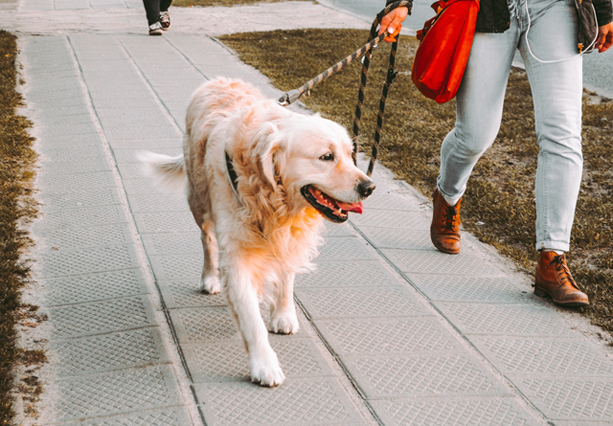You are here
New regulations stipulate JD20 in annual fees for dog ownership
By Suzanna Goussous - Nov 06,2016 - Last updated at Nov 06,2016
AMMAN — Under a new by-law on dog ownership, dog owners will be required to pay an annual licensing fee of JD20, to “regulate the licensing process” and “limit the spread of stray dogs”, according to a statement published in the Official Gazette.
If the licence is issued for the first time, the owner would pay JD10 for an identification card and a licence, in addition to the annual fee of JD20.
The database at municipalities will include information on each licensed dog.
The regulations, issued earlier this month, are aimed at restricting the ownership of dogs to households.
Licensing the dogs, according to the statement, allows households and individuals to own the pets under the condition of placing a collar and a card identifying the owner and licence.
Article 4 of the new by-law stipulates that “each dog owner who is on a temporary visit to an area under the jurisdiction of a municipality is allowed to keep the dog for a period that does not exceed 15 days without a licence, provided that the dog is properly restrained when in a public place”.
The regulation requires the owner to fill in personal information forms, provide the dog’s health certificate, and sign a written pledge that he/she would do what is best for public health and security.
Despite these new regulations, veterinarian Dima Momani said the problem of stray dogs will continue.
“We won’t solve the issue by licensing dogs that belong to private households,” Momani told The Jordan Times on Sunday.
The veterinarian added that the process before used to require securing the approval of five to ten neighbours to own a dog licence, but with the additional fees, “it became more about the money”.
For his part, veterinarian Naseem Nueimi said the clinics and animal protection centres in Jordan were not informed by the authorities of the new regulation.
“Officials did not discuss this with people involved in the field or those who have the required experience to make new decisions and regulations. It’s not a bad idea, but vets and clinics were not taken into consideration,” he added.
Nueimi said licensing dogs in the Kingdom is “a good step”, but “more cooperation with veterinarians and clinics should take place” to achieve better, more organised results.
Sanaa Ababneh, an owner of a French Terrier, said the new regulations make the process of adopting or buying dogs more difficult, especially for families with more than two children.
“Taking care of a dog should not be made difficult to animal lovers; it should be available for everyone who is willing to give the animals a proper shelter,” she told The Jordan Times.
But Saleem Shihadeh, another pet owner, said the new regulations “will put things in order”, by placing more rules on families or individuals interested in having pets at home.
“It would make ownership more of a commitment towards the pet, to take care of them and to provide them with their needs,” he added.
Related Articles
AMMAN — Dog owners are required to provide neighbours’ consent, as well as a collar or another way to identify the dog, when applying for a
AMMAN — The Greater Municipality of Amman (GAM) has introduced a comprehensive system for 2023 to regulate the monitoring, licensing and sup
AMMAN — Stray dogs roaming Jordan’s residential areas remains a significant challenge that requires authorities and citizens to


















